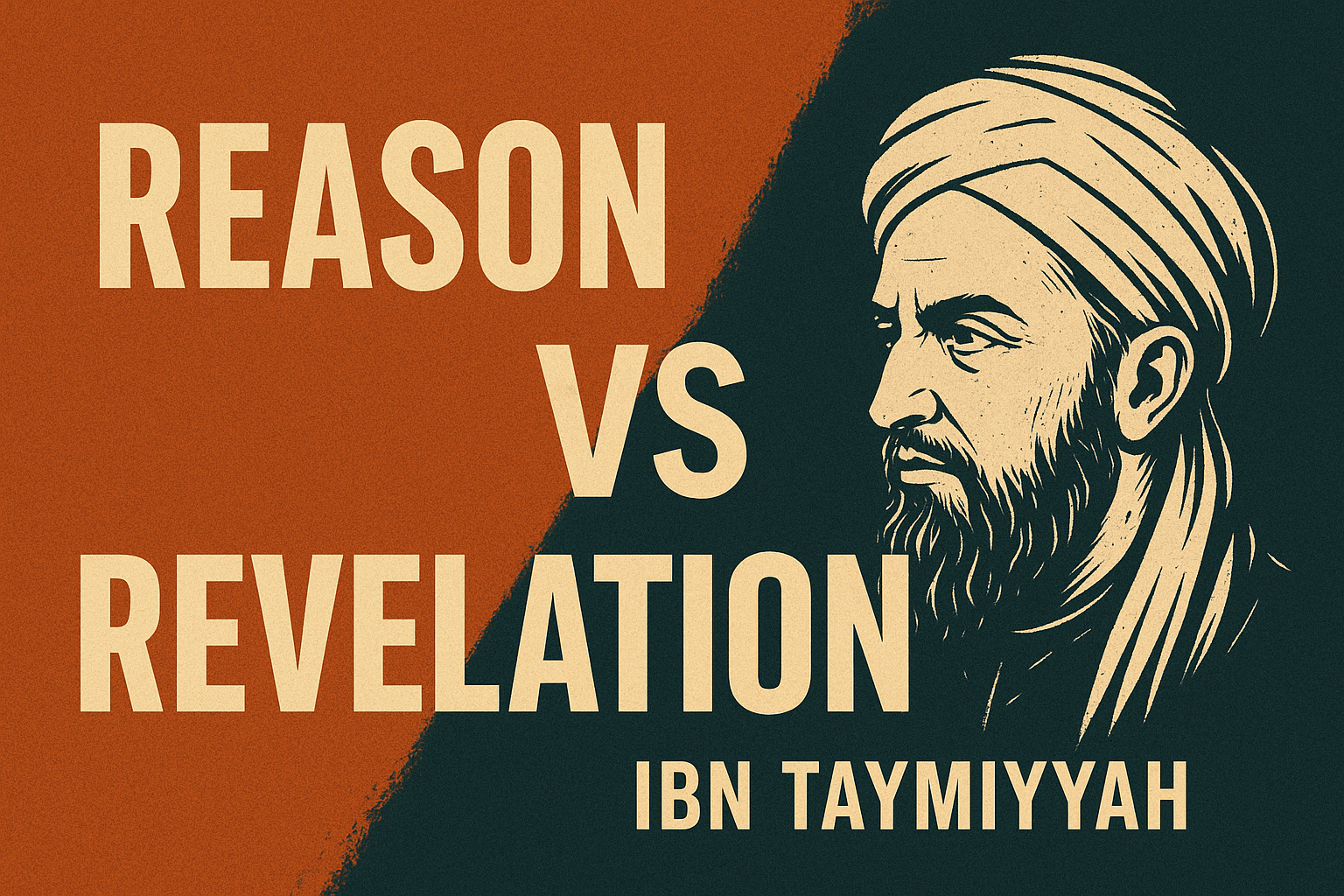Faith Isn’t Irrational. But Denying It Might Be.

Immanuel Kant, one of the most influential Western philosophers of all time, famously said:
I had to deny knowledge to make room for faith
What did he mean by this?
Kant believed that some concepts, such as the belief in God, the belief in the afterlife, and the belief in the soul for instance, were beyond the reach of human reason. In other words, you can either be rational or a believer, but you cannot be both. Hence, for Kant, he had to deny knowledge to make room for faith.
This idea of faith vs reason has shaped much of modern secular thought. Many modern secular thinkers, including those on college campuses, often echo this sentiment; that once one starts to think rationally, faith is no longer justifiable.
But is this really the case? Must we abandon reason to believe?
To understand this differently, we turn to a voice from the Islamic tradition who completely challenges this divide. Ibn Taymiyyah, the 14th-century Islamic theologian and jurist, rejected the Kantian idea that reason and faith must be at odds. In fact, he goes so far as to argue that true reason and true revelation are never in conflict. Revelation: Not Enemies, But Partners
Reason and Revelation: Not Enemies, But Partners
Ibn Taymiyyah offers a powerful analogy to explain how reason and revelation work together:
“Revelation is like light, and reason is like the eye. If the eye is sound and opens in the presence of light, it will see. But if the eye is blind, or if there is no light, then it sees nothing.”
— Darʾ Taʿāruḍ al-ʿAql wa al-Naql
This metaphor tells us that reason (ʿaql) is not in opposition to revelation (naql). Instead, reason is the faculty through which we perceive, and revelation is the illumination that allows us to see clearly. If one lacks sound reasoning , or refuses to open their mind, they will not grasp revelation, just as a blind man cannot benefit from the presence of light.
From this foundation, Ibn Taymiyyah lays out his view of knowledge, which comes from two God-given sources:
- ʿAql – human reason and intellect
- Naql – divine revelation (Qur’an and Sunnah)
Both of these, he argues, come from the same source: God. Therefore, when rightly understood, they can never contradict. If someone sees a conflict between reason and revelation, either they have misunderstanding the text, or they’re misusing their intellect.
He writes:
“Reason is in harmony with revelation; it supports it, confirms it, and points to it. Whoever opposes revelation with reason has only misunderstood either revelation or reason — or both.”
— Darʾ Taʿāruḍ al-ʿAql wa al-Naql
Ibn Taymiyyah's view is not only distinct, it is radically different from the modern Western dichotomy between faith and reason. Because God is the one who bestowed us with reason and who gave us revelation, then there cannot be any contradiction between reason and revelation. In fact, anyone who DOES say that there is a contradiction between reason and revelation are either misunderstanding the revelation from God, or not properly using their reason that God bestowed upon them.
Faith as the rational choice
When Kant says that he needs to deny knowledge in order to have faith, Kant is essentially making the claim that faith is irrational. However, Ibn Taymiyyah actually flips this idea on its head. Ibn Taymiyyah argues that to deny God, to deny revelation, and to deny religion all together is actually irrational. According to him, one must abandon reason in order to reject faith, not the other way around.
Ibn Taymiyyah upholds that there are many rational proofs for the existence of God. The necessary being argument, the kalam cosmological argument, and, most interestingly, the argument from fitrah. All of these are rational proof for the existence of God; and nearly all of these are used in academic circles as well.
In fact with all of these arguments for the existence of God, Ibn Taymiyyah sees the atheist and the skeptic as the irrational ones. He writes:
The sound intellect affirms what the truthful messenger brought. Every just and intelligent person knows this. only those who are ignorant or unjust would oppose it” (Dar Ta’arud, al-aql wa al-naql)
Ibn Taymiyyah is making a bold claim: the non-belief in God is not brought up by rational means or by actual intellectual query; but rather, it is due either to ignorance or to a willful decision not to believe in God. The reason Ibn Taymiyyah makes this claim is rooted in his concept of the fitrah, the idea that all human beings are born with an innate disposition to believe in God.
The Fitrah: Humanity's Natural Orientation Toward Faith
For Ibn Taymiyyah, this is the heart of the matter: belief in God is hardwired into human nature. Faith is not something imposed from the outside, it is something we are born with. He writes:
Every human is born with a natural belief in God. It is only external influences-social, cultural, or philosophical- that distort this natural state (Majum al fatawa, 4/11)
This means that faith is not something foreign or forced upon us; it is a part of who we are. Just as we naturally seek food when hungry or rest when tired, we are naturally drawn to our Creator and to believe in him. Denial of God then is not some intellectual breakthrough, but rather a deviation from the original state of man.
In this context, reason and faith are not at war; but rather partners. Reason supports the fitrah, and the fitrah recognizes the truth of revelation.
In fact, Ibn Taymiyyah would argue that when a person sincerely uses their intellected, unclouded by bias or arrogance, they will find their way back to the fitrah, the innate belief in God. The truth resonates with the human soul, and it is the purpose of sound reason that acts as the key to unlock it.
Ultimately, Ibn Taymiyyah's view restores dignity to both faith and reason. Faith is not blind belief and reason is not skepticism that is counter to belief; both are gifts from God that guides us to the truth.
Conclusion
So, to return to Kant’s famous quote:
I had to deny knowledge to make room for faith
Do we really have to give up reason in order to believe? Well, according to Ibn Taymiyyah, the answer is clearly not.
For Kant and many secular philosophers like him, faith and reason can be seen as enemies. In order to believe in God and religion, one has to fight against his own intellect and reason. However, Ibn Taymiyyah has shown us that this is not the case. In fact, for Ibn Taymiyyah faith is the perfection of reason. Revelation and reason do not contradict one another because both originate from the same source: God.
In fact those who claim that faith is irrational are themselves failing to use their God-given reason properly. They are like a person who closes his eyes in the presence of light and then complains why he cannot see. It is not the light that is the problem, but the refusal to look.
Belief in God, then, is not only compatible with reason, but it is demanded by it. It is the most rational conclusion a sound mind can reach. For Ibn Taymiyyah, we do not need to deny knowledge to make room for faith, we need to embrace true knowledge and sound reason in order to make room for true faith.
